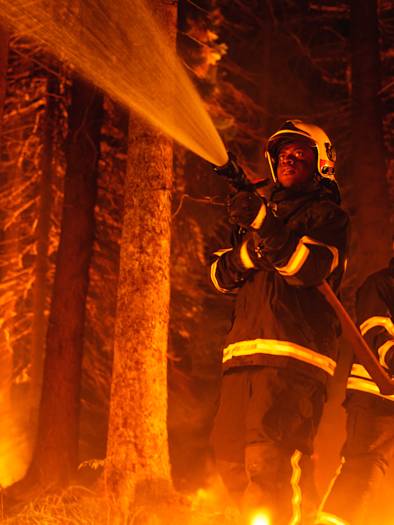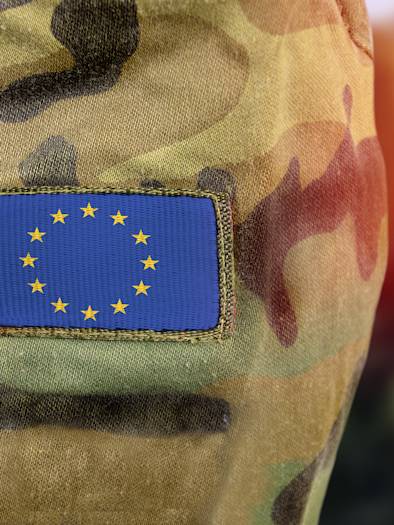
United in crisis?
The effectiveness of government communications in managing the crisis has been mixed. Citizen confidence is probably their most valuable asset and must not be squandered, argue H+K Brussels’ Thomas Tindemans, Tzveta Dryanovska and George Candon.
The past week has seen a marked acceleration in international cooperation around the COVID-19 crisis, but the US’s insistence on including the expression ‘Wuhan virus’ in the G7 communiqué underscores that the imperative for cooperation has not completely papered over international divisions. That collaboration was perhaps nowhere better in evidence than in the EU, which moved relatively swiftly to change or suspend EU competition and budgetary rules to allow EU member states take extraordinary measures.
‘Relatively swiftly’, because reaction and decision-making was somewhat slowed at the EU level, and this for several reasons. It is because not every member state has been impacted in the same way by the crisis. It is also because the European Commission is limited in the measures it can introduce to member states, as health policy is a national competency. That’s why its focus has been on shoring up the European economy and freeing up the rules to allow member states to take robust action.
The selfish gene
Closing down national borders in Europe to try to stem the spread of the virus was probably a good idea. But those border closures also reflected an instinct across Europe for countries to look inwards, to deal with the pandemic as a national rather than an international emergency. There is some logic to this when we consider the very different national healthcare and social security systems, varied infrastructure and financial and human resources. But the initial lack of coordination at the EU level also led to some clearly selfish and ultimately counterproductive measures, like seizing and stockpiling cargos of masks, medicine, and sanitiser, and huge border tailbacks for freight traffic, instead of deploying materials where there were most needed up front to prevent further contagion. If the European Commission’s swift action to rule such stockpiling illegal was a great example of EU rules put to effective use and focus minds, the protracted video conference between the EU’s 27 heads of government and state on Thursday because of disagreement about the pooling of resources to tackle the economic consequences of the crisis laid bare the limitations of mutual support among EU member states.
Mixed messages
The wide divergence in those governments’ healthcare response measures demonstrated a clear absence of coordination early enough. While some countries like Belgium and Germany went into lockdown relatively early, others like the Netherlands and the UK decided that herd immunity was the way forward, before having to radically revise that position as their contamination curve turned sharply upward. Rather than consulting and agreeing with one another, European countries generally copied neighbours while ostensibly presenting a purely national approach to handling the crisis.
Many of these government measures came in for sharp criticism, perhaps nowhere more in the ambiguity of some of the messages delivered. Much government advice was unclear, suggesting that people ‘should’ remain housebound rather than insisting they do, or not explaining early enough what categories of workers were allowed to, indeed had to, present at their places of work, and who must definitely stay at home. Mixed messages were a recurring theme, from washing hands from 20 seconds or 60 seconds, to keeping one or two meters apart, to the rules around taking exercise. What will probably become the term for 2020 – ‘social isolation’ – was also criticised on social media for not being precise enough.
In times of major health challenges people expect their governments to come with reliable information, clear advice, and strong measures to protect public health. Unambiguous communication is essential and anything less causes massive confusion, as the past weeks have clearly demonstrated.
Rule by consent
That sense of popular confusion puts government legitimacy into question in the eyes of citizens. But we also witnessed examples of effective and clear communication bolstering confidence and winning plaudits. The fortunes of Ireland’s health minister have seen a complete turnaround in the past fortnight, going from commentators baying for his resignation to designating him a hero because of his capable management of the crisis. (Romania’s, in contrast, has just resigned.) Belgium’s prime minister won praise for the quiet, calm determination with which her government’s taken swift and robust action and calmed panic buying. France’s president upped the ante with combative war rhetoric in his second national address which was lauded for underscoring the gravity of the situation. The German chancellor’s moving tv address was all the more impactful for its rarity. The crisis is occasion for governments to leverage, make or break their legitimacy. South Korea witnessed widespread acceptance of pretty draconian measures, because of a presumption that the government is acting in the public (if not the individual’s) best interest.
European governments are rapidly affording themselves similarly robust powers to rule by decree. But governments across the region and the world will have to tread a very careful line and not abuse these powers if they are to maintain legitimacy in the eyes of their citizens. And this is fundamental, because only willing citizen compliance and cooperation will stop this pandemic. They will not be coerced into their homes if they lose confidence in their governments. While we’ve already seen the military roped into helping in limited ways, we’re not going to stop the virus with tanks on our streets.








